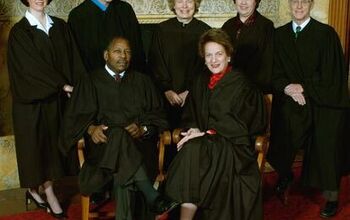Ohio Appeals Court Strikes Down GPS Vehicle Spying
Although the US Supreme Court is expected to settle the issue of GPS tracking of motorists soon, a three-judge panel of the Ohio Court of Appeals, Fifth District ruled 2-1 earlier this month against the warrantless use of the technology. The majority’s decision was likely designed to influence the deliberations of the higher courts. On November 8, the US Supreme Court will hear oral arguments in the GPS case US v. Jones. The Ohio Supreme Court is also considering Ohio v. Johnson in which the Twelfth District appellate court upheld warrantless spying.
Nine days later, the Civic appeared at the location of a robbery, and Minerd was able to follow the car back to the home of David L. White, who was caught with the stolen property. The Fifth District considered the question of whether it is ever acceptable for government agents to attach such devices to privately owned vehicles without a warrant.
“We respectfully disagree with our brethren in the Twelfth Appellate District,” Presiding Judge W. Scott Gwin wrote. “We find for the reasons which follow that under the facts of this case a warrant was required before placing the GPS tracking unit on the suspect vehicle and to continuously monitor the tracking signal.”
The panel majority took issue with the idea that attaching devices on the bumper of vehicles was ordinary conduct one could expect from any member of the public. The judges expounded on the importance of the Fourth Amendment in securing individual privacy against arbitrary government intrusion and concluded their colleagues were wrong in suggesting one has no expectation of privacy when parking on the street.
“When a person parks his car on a public way, he does not thereby give up all expectations of privacy in his vehicle,” Gwin wrote. “There is no way to lock a door or place the car under a protective cloak as a signal to the police that one considers the car private… Upon observing a stranger underneath one’s automobile, it is reasonable to believe that most citizens would sound an alarm. A response to the effect of, ‘Well, you have no reasonable expectation of privacy in the undercarriage of your car so any stranger can crawl under there and attach a GPS tracking device’ would be met with righteous anger and disbelief. A citizen would justifiably feel that his or her property has been defiled; her privacy breached and his personal security compromised.”
Since the GPS unit allows surveillance capabilities far beyond anything that could be accomplished with traditional spying methods, the majority dismissed the argument that the device only captured information that could have been observed with visual surveillance. Without enforcing a warrant requirement, police could install permanent tracking devices on anyone’s car whether or not criminal activity is suspected.
“We find that the GPS tracking device, remaining constantly in place, performs a search of much more substantial and therefore unreasonable duration and scope,” Gwin wrote. “The installation of the device without consent upon private property is a ‘search’ subject to Fourth Amendment warrant requirements, in the sense that it is an unreasonable governmental intrusion upon the individual’s constitutionally guaranteed right of personal security, personal liberty, and private property.”
A copy of the decision is available in a 100k PDF file at the source link below.
Source:
Ohio v. White (Court of Appeals, State of Ohio, 9/1/2011)
[Courtesy: Thenewspaper.com]
More by The Newspaper
Latest Car Reviews
Read moreLatest Product Reviews
Read moreRecent Comments
- Dave M. What???? Big business taking advantage of us? I thought it was all Biden's fault!?!
- OA5599 Now if we could only get Toyota to change BZ4X...
- FreedMike You mean the petroleum market is manipulated and doesn't respond to normal supply/demand? No way. Can't be. This, folks, is why electrification is important - the only reason why the petroleum industry gets away with this is because they were the only game in town for over a century. That has GOT to change or we'll keep getting ripped off.
- JMII Ironically, it’s actually the oil companies themselves that have walked back production as a way to maintain higher prices.You don't say? I'm shocked. I thought we could just wave a magic wand and lower gas prices.
- Jkross22 You know that feeling you get when you're nervous and you can feel it in your gut? Everytime I see one of these I get that. Yeah, they look great. Yeah, it'll be the worst decision of the year. And next year. And the year after that.

































Comments
Join the conversation
Thank god for judges who haven't been brainwashed by FOX News....
As encouraging as this ruling is, given how SCOTUS has ruled in the past (specifically caballes v. illinois), i'm not holding my breath for good news from them.